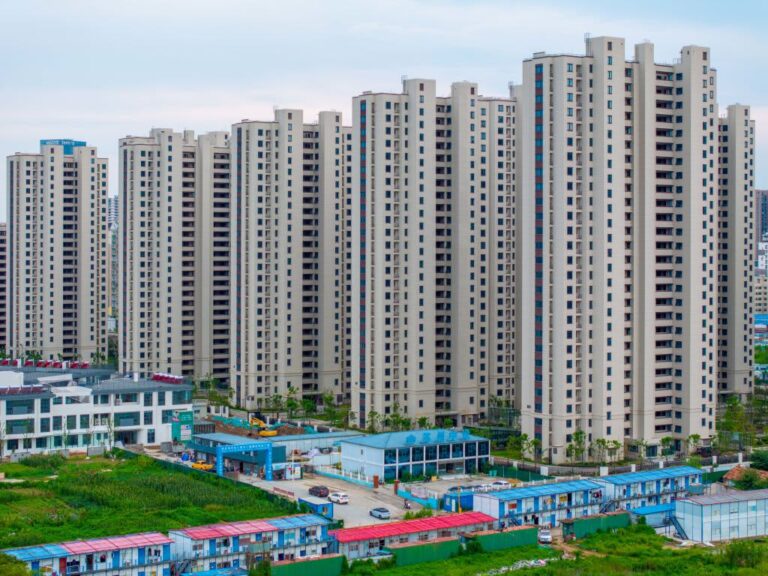A real estate building under construction in Qingjiangpu District, Huai’an City, Jiangsu Province, China on July 15, 2024.
Photo | Future Publishing | Getty Images
BEIJING — Chinese officials stressed Friday that the country is focusing on its own issues amid rising trade tensions.
“If we do our job well, we can ensure that the national economy runs smoothly and moves forward steadily,” Han Wenxiu, deputy director of the Financial and Economic Affairs Office of the Communist Party of China Central Committee, told reporters in Chinese (translated by CNBC).
He listed three key areas: the stable and healthy development of the real estate market, accelerating the development of “emerging and future industries”, and expanding domestic demand, “especially consumption”.
Answering a question about how China will support growth in the face of escalating trade tensions, Han used a phrase attributed to President Xi Jinping, who in recent years has called on China to “do its job well” and focus on its own agenda.
The press conference came after the conclusion of a high-level policy meeting known as the Third Plenary, which ended on Thursday. A final resolution has yet to be announced but is expected within days, with initial statements calling for the promotion of domestic technology and achieving economic targets for the year.
Although external uncertainties are increasing, this will not affect China’s commitment and confidence to continue reform and further deepen opening-up.
Mu Hong
Deputy Director for Comprehensive and Deepening Reform, Communist Party of China Central Committee
“Although external uncertainties are increasing, they will not affect China’s commitment and confidence to continuously deepen reform and further opening up,” Mu Hong, deputy director of the Party Central Committee’s Office for Comprehensively Deepening Reform, told reporters on Friday.
China has used the term “reform and opening up” to describe its policies over the past four decades that have gradually opened up its economy to foreign and private capital, among other changes to the communist state.
After decades of rapid economic growth, China’s economic growth is slowing, with second-quarter GDP growth weaker than expected and some analysts saying more stimulus is needed to get the country to its full-year growth target of around 5%.
Exports have held up as a growth engine, but a real estate slump and sluggish consumption have weighed on the economy. Beijing’s long-term push to build up advanced technologies has not fully offset the drag from those sectors.
Han, who also heads the Central Leading Group for Rural Work, acknowledged on Friday the “systemic impact” of real estate on China’s economy. He said China will continue to absorb existing housing stock while “optimizing” new construction and the supply of homes that have been sold.
Property investment fell 10.1% in the first half of this year, while home sales fell more than 20% from a year ago.
In a separate response on Friday, Han said the economy faces several challenges and called for “stronger and more effective macro policies,” without giving a timeline.
Han outlined the General Assembly resolution, which he said includes plans to improve the macroeconomic governance system and further integrate urban and rural development.
“we, [the resolution] It has been implemented and it has been effective,” he said at the end of his opening remarks.
—CNBC’s Sonia Heng contributed to this report.

